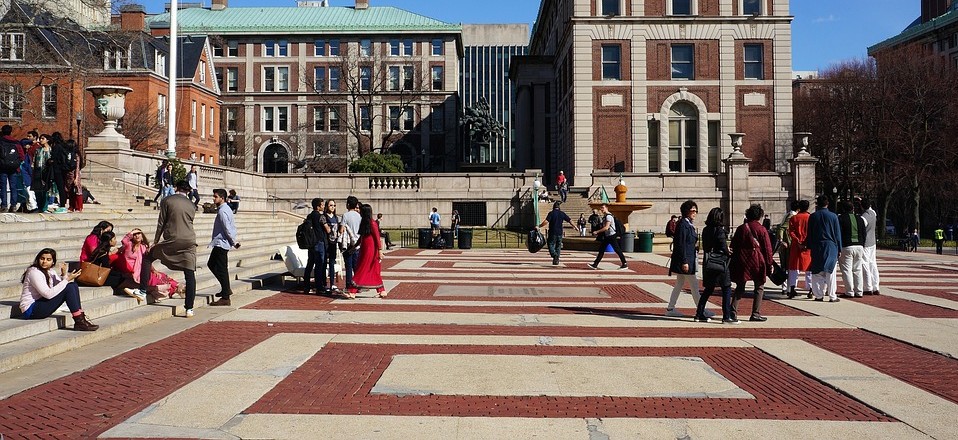The Department of Religion teaches interdisciplinary as well as multi-disciplinary approaches to the study of religion, and its faculty cultivate the critical examination of and disciplined reflection on the religious dimensions of cultures, societies, and individuals. Religious studies majors graduating from Columbia command an impressive range of knowledge about Western and non-Western cultures and traditions, and exhibit great ability to analyze and interpret texts, social life, and cultures. Recent graduates are pursuing careers in documentary film, law, medicine, the philosophy of science (graduate school), public policy, and teaching.
WHY STUDY RELIGION?
It is fair to say that everyone has an idea about what religion is. It’s hard to avoid this – in fact, it might be impossible: ideas about religion are not only “academic” but are built into the world we live in. Whether we are religious or not we often find ourselves in situations where we make judgments about religions and their value to ourselves and others – good, bad, or otherwise. Questions about “religion” are a regular feature of discussions about violence, gender and sexuality, race, as well as science, health and wellness, and the environment. Religious ideas are translated and developed not only in religious communities but in the arts, literature, performance, and popular culture. Around the world, and through history, religion has intersected with our ideas about political and personal freedom, about national and other kinds of social differences, about philosophy and science, and about what it means to be human.
And yet we often find that our normal operating ideas about religion are inadequate to understanding the religious things we see going on in the world that people call religious. Religious stuff often confounds our ideas about it.
Can we understand religion better? We think that we can. Doing so requires many perspectives, disciplines, and orientations, and the Department of Religion faculty are therefore committed to interdisciplinary intellectual community. Our faculty’s expertise ranges across the humanities and the social sciences. And in our classes you will likewise find many rigorous approaches to question and think critically about religion and the world.
Faculty members are committed to a better understanding of religion and, therein, a better understanding of the worlds that we have lived in, and that we make today. Professors and instructors in Religion include scholars of various religious traditions as well as scholars of secularism and secularity.
Students will find courses in Religion take different foci. Some courses concentrate on the history of a particular tradition (for example, Judaism, Hinduism), and others focus on disciplinary, topical, or methodological issues (for example, gender, ritual, or aesthetics). Regardless of their content, all courses in Religion pose questions about what religion is and has been – how it relates to sexuality, politics, the arts, the environment, to science or to ethics. Our classes will introduce you to perspectives and tools to ask better questions and find better answers about religion and about our collective world. Our majors and concentrators continue to deepen and develop their understanding of religions through seminars and in independent study.
Majors and concentrators should consult the Director of Undergraduate Studies when entering the Department and devising their program of study. Students should also seek academic advice from any Religion faculty member, as many faculty members hold positions in other departments at Columbia and our interests are furthermore diverse. All of the faculty in the department are committed to an expansiveness of thought and an independence of intellectual pursuit and advise accordingly.
